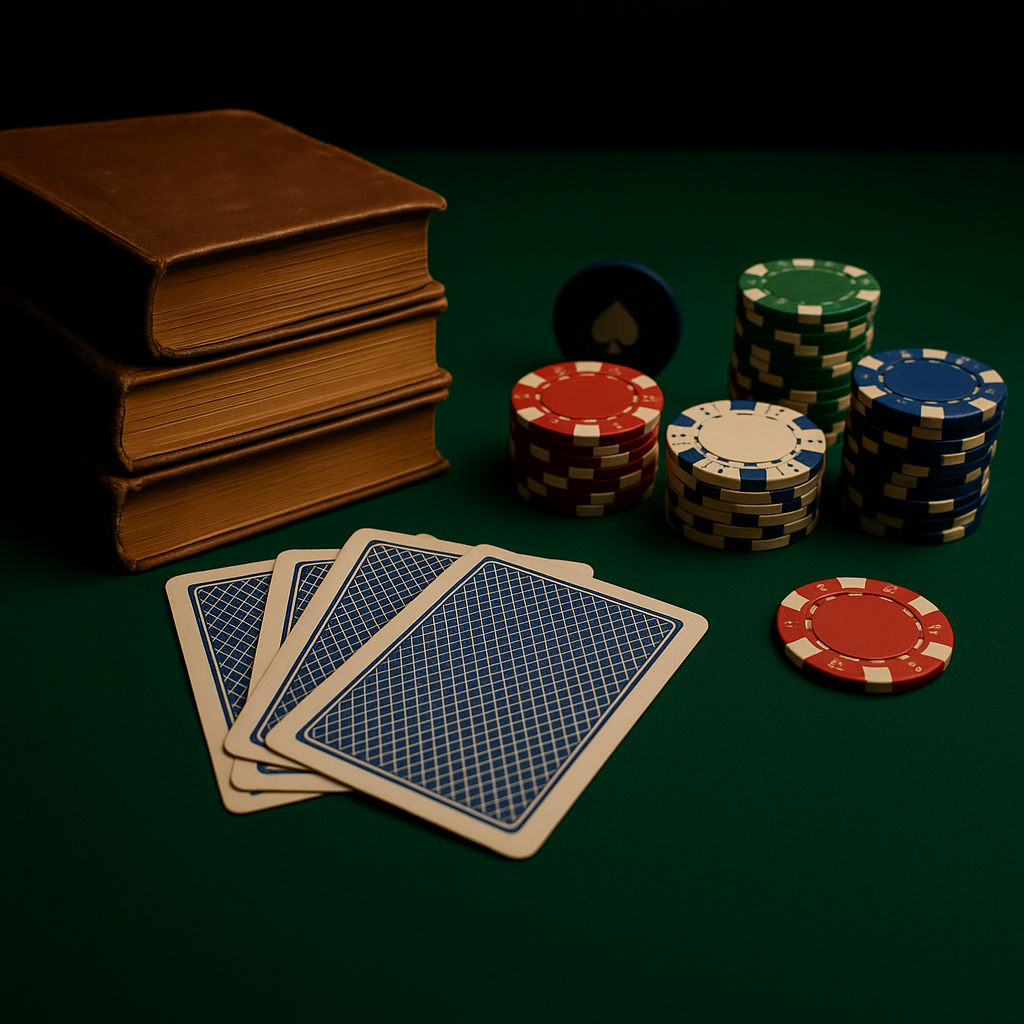
When most people think of poker, they imagine smoky rooms, poker chips, and someone bluffing with a smirk. What they often miss is that poker is much more than a game, it’s a masterclass in psychology, strategy, patience, and decision-making. In fact, in many ways, poker teaches you more about real life than school ever could.
Life Is a Game of Incomplete Information
In school, you’re taught facts, formulas, and definite answers. You’re given a problem and expected to find the correct solution. Life doesn’t work like that.
In poker, like in life, you rarely have all the information. You don’t know what cards your opponent holds. You don’t know what move they’ll make next. You’re making decisions with limited data, and so are they. That’s exactly how real-world decisions work, whether you’re choosing a career, navigating relationships, or managing a business.
Poker trains you to become comfortable with uncertainty. It teaches you how to make the best possible decision, not the perfect one. If you’re interested in exploring poker communities, check out our poker club list to find where you can start playing.
Risk Management is Everything
School rarely teaches students how to assess and manage risk. But life? It demands it.
Poker is all about risk and reward. You constantly weigh how much you’re willing to lose against what you stand to gain. Are you playing too safe and missing opportunities? Or are you being reckless and putting everything on the line for a weak hand?
This habit of evaluating risk helps you develop a realistic and calculated mindset, a crucial life skill for investing, entrepreneurship, negotiations, and even relationships. Just remember, in certain places, there are legal risks of playing club poker, so always know the rules before you play.
You Learn to Read People, Not Just Books
In school, success depends heavily on memorization and test-taking skills. In poker, success comes from reading people, watching their expressions, their betting patterns, their behavior under pressure.
Poker teaches emotional intelligence in a high-stakes environment. You learn to spot confidence, detect nervousness, and anticipate actions based on non-verbal cues. It forces you to develop people skills that are vital in leadership, business, sales, and daily social interactions.
Failure is a Better Teacher Than Any Textbook
In school, failure is punished. Bad grades hurt your GPA. Mistakes are marked in red ink. Naturally, students begin to fear failure.
In poker, failure is part of the learning process. Every bad hand, every poor decision, every painful loss teaches a lesson, instantly and memorably. You start to analyze your own thinking, review your strategy, and come back stronger. Failure becomes a feedback system instead of a dead end.
The same goes for life. Success doesn’t come without setbacks. Poker teaches you to bounce back, think critically, and keep improving.
Discipline and Patience Win Over Talent
In school, talented students often do well without much effort, until life hits. In poker, raw talent only takes you so far. What really separates winners from losers is discipline and patience.
You can’t play every hand. Chasing every pot is never a winning strategy. Instead, know when to fold, when to wait, and when to strike. Successful players are those who control their impulses and wait for the right moment.
This lesson is invaluable in life. Whether you’re saving money, building a career, or waiting for the right opportunity, patience and discipline are far more powerful than instant gratification.
Adaptability is Your Real Superpower
In school, the rules are fixed. The tests don’t change. The syllabus is set. But the real world is messy and unpredictable.
Poker is a live, evolving game. You must adapt to different players, shifting dynamics, and changing odds, often within seconds. You learn to pivot your strategy and remain flexible under pressure.
That’s life in a nutshell. The people who succeed aren’t the ones who memorize the most, they’re the ones who can adapt the fastest.
You Don’t Control the Cards, But You Control the Play
One of the most powerful lessons poker teaches is that you can’t control everything. You don’t get to choose your hand, but you do get to choose how you play it.
In life, you can’t control where you were born, the economy, or what others think of you. But you can control your response, your mindset, and your actions.
Poker teaches personal responsibility. You stop blaming bad luck and start focusing on what you can influence, your choices, your reactions, and your long-term strategy.
The Real-Life Classroom of Poker
Poker isn’t just a card game. It’s a condensed version of life itself, full of risks, uncertainties, personalities, challenges, and opportunities.
While school equips you with knowledge, poker sharpens your wisdom. It forces you to think critically, stay calm under pressure, manage emotions, read people, and make decisions that balance risk and reward.
At the end of the day, Bluffing Monkeys believes poker teaches you that life isn’t about playing the best cards, it’s about playing the cards you have in the best way possible.
